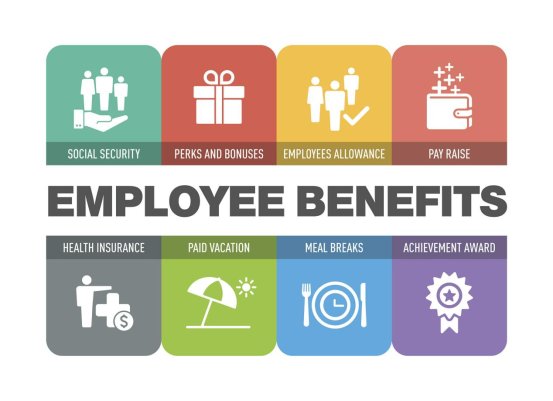Employee Benefits: The Silent Force Driving Modern Business Success
In today’s high-pressure, high-stakes business world, employee benefits have become more than just a “nice-to-have.” They are now a core element of workplace success—critical to attracting talent, keeping top performers, and creating a culture where people genuinely want to stay and thrive.
In today’s high-pressure, high-stakes business world, employee benefits have become more than just a “nice-to-have.” They are now a core element of workplace success—critical to attracting talent, keeping top performers, and creating a culture where people genuinely want to stay and thrive.

A well-rounded benefits package—featuring healthcare, time off, and flexible working models—demonstrates that a company doesn’t just expect performance but actively supports well-being. This, in turn, builds trust, increases loyalty, and gives businesses a competitive edge in retaining high-value employees.
What Today’s Workforce Really Wants
Gone are the days when a paycheck and a few vacation days were enough. Employees today—especially younger generations—are looking for meaningful, lifestyle-aligned support. That includes flexible hours, remote work options, and access to mental health resources.
Smart companies are stepping up. They’re not just offering more—they’re offering better: wellness stipends, counseling services, parental leave, and career coaching. These modern benefits reflect a deeper understanding of what motivates today’s workforce: autonomy, balance, and care.
Turning Benefits Into Business Strategy
Employee benefits aren’t just for show—they’re strategic levers for growth. Wellness programs reduce long-term healthcare costs. Learning and development stipends drive innovation and upskilling. Flexible scheduling leads to fewer sick days and stronger morale.
When benefits are aligned with company goals, the entire business benefits—from smoother operations to improved performance across the board. In this light, benefits become part of your business strategy—not an afterthought.
Tailored Benefits = Higher Engagement
One-size-fits-all is out. Today’s diverse workforce expects benefits that fit different life stages and personal needs. Younger professionals might prioritize growth opportunities and mental health tools, while mid-career employees could be more focused on family health coverage and retirement planning.
Companies that offer customizable benefits stand out. They show that they truly see their employees—not just as workers, but as individuals. This tailored approach builds deeper engagement, loyalty, and a stronger emotional connection to the organization.
Benefits as Culture-Builders
Beyond practical support, benefits help define a company’s values. A generous, well-communicated benefits program sends a clear message: “We care.” And when employees feel cared for, they show up more engaged, more committed, and more willing to collaborate.
It’s no coincidence that companies known for their positive cultures—whether in tech, retail, or finance—often lead the way in benefits innovation. These benefits foster pride, attract top-tier talent, and shape a company where people genuinely want to work.
Success Stories That Set the Bar
Industry leaders are already reaping the rewards of employee-first strategies. Salesforce prioritizes mental health days and flexible work setups. Netflix offers extended parental leave without bureaucracy. Patagonia goes as far as providing on-site childcare—boosting retention among working parents.
These examples aren’t just good PR. They prove that putting employees first pays off—in performance, reputation, and long-term resilience.
A Long-Term Investment in People and Performance
Rather than viewing benefits as a financial obligation, forward-thinking companies treat them as a long-term investment in people—and by extension, in success. The result? Lower turnover, higher satisfaction, and a workforce that’s motivated and future-ready.
By staying in tune with employee needs and continuously evolving their offerings, businesses build loyalty and trust. In a rapidly shifting job market, that kind of investment isn’t just wise—it’s essential to thriving.







